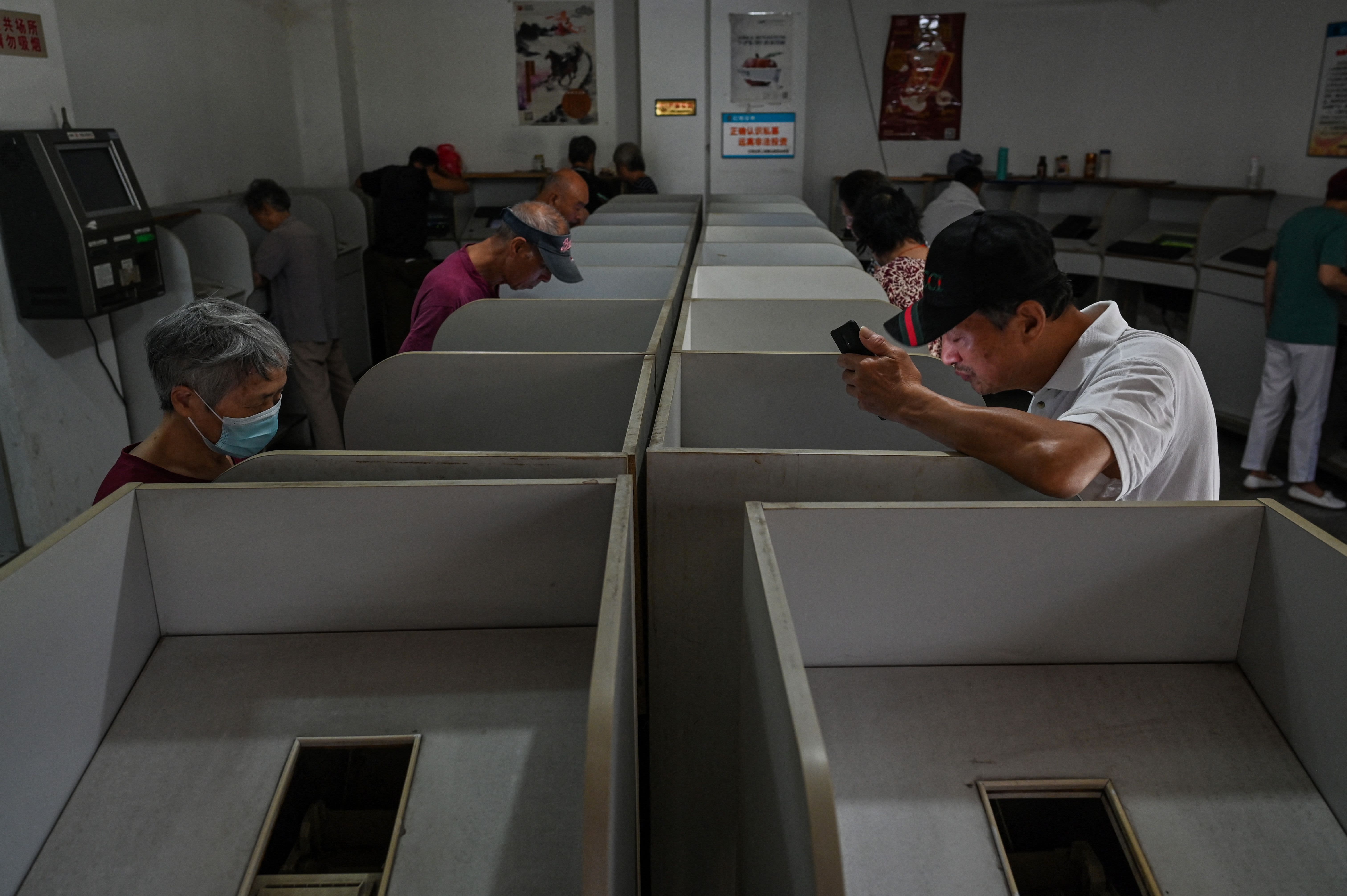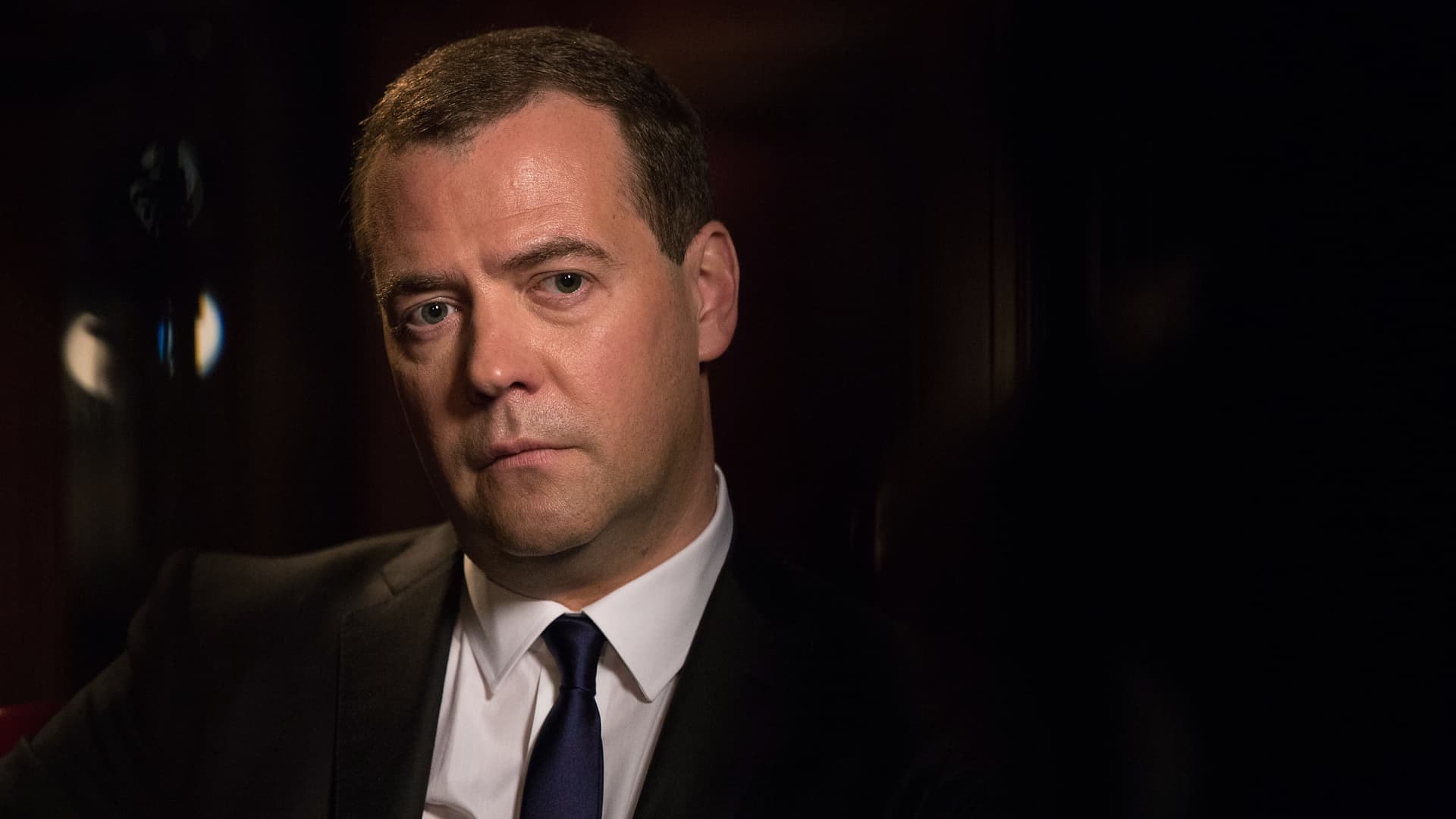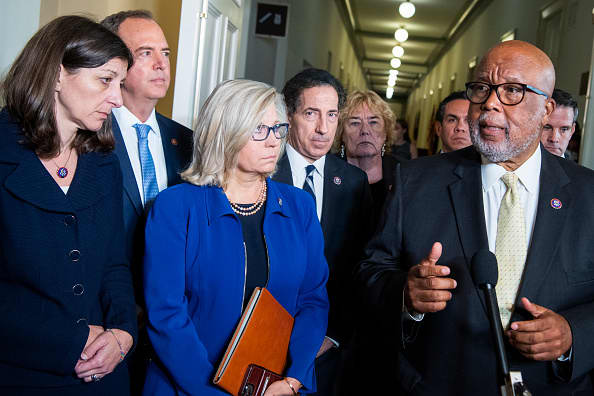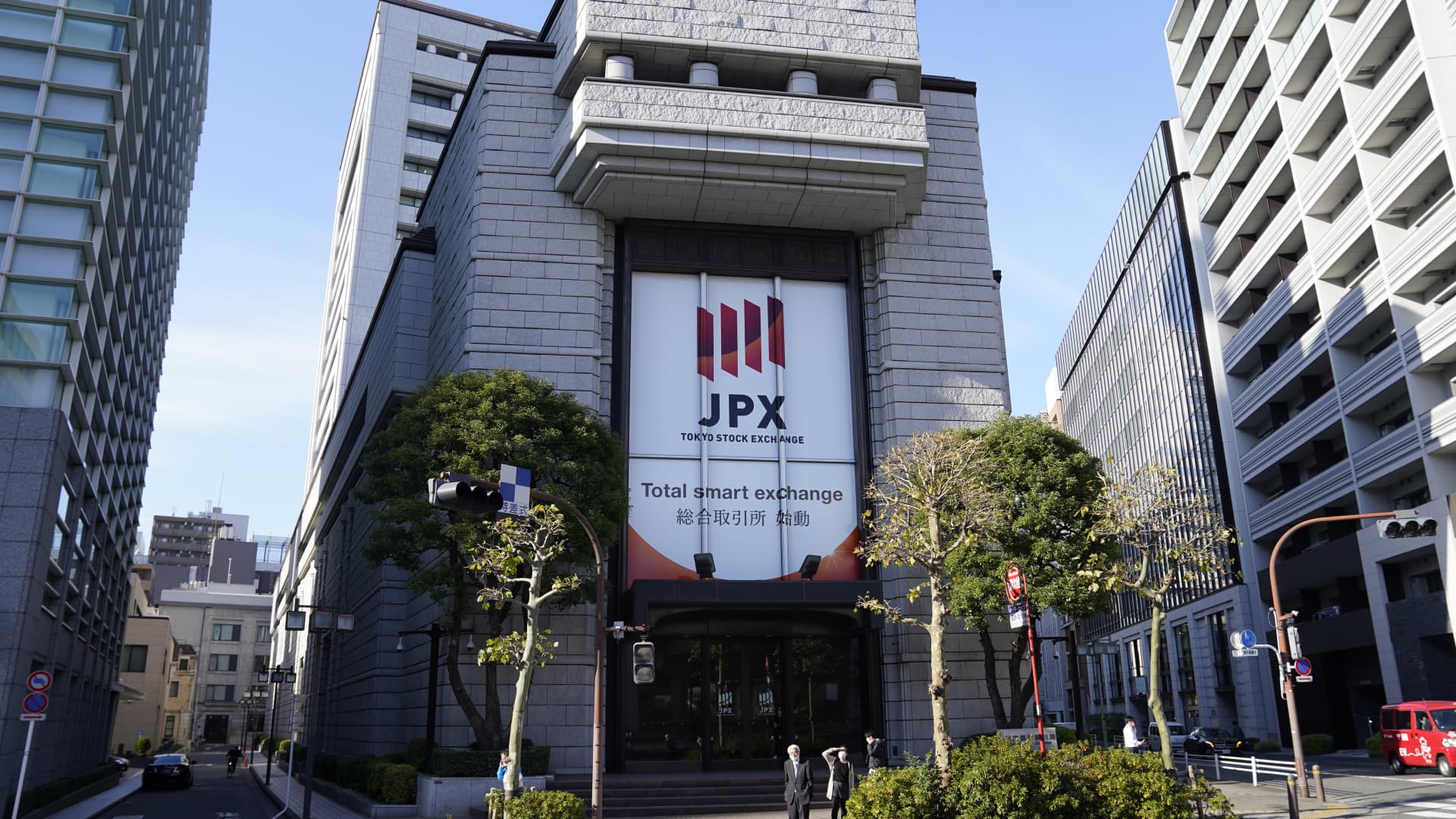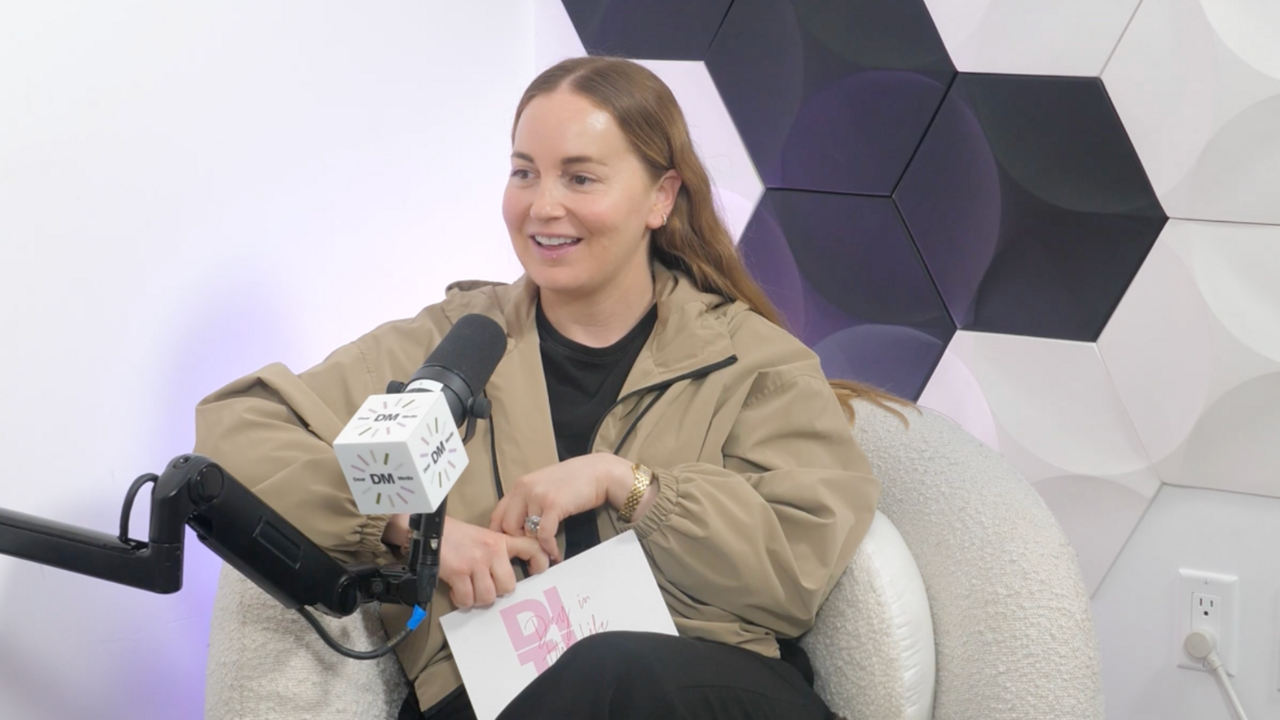Former Trump probe prosecutor refuses to answer House Judiciary Committee questions
Mark Pomerantz once played a key role in the Manhattan DA's criminal probe of Donald Trump. The former president is charged with falsifying business records.
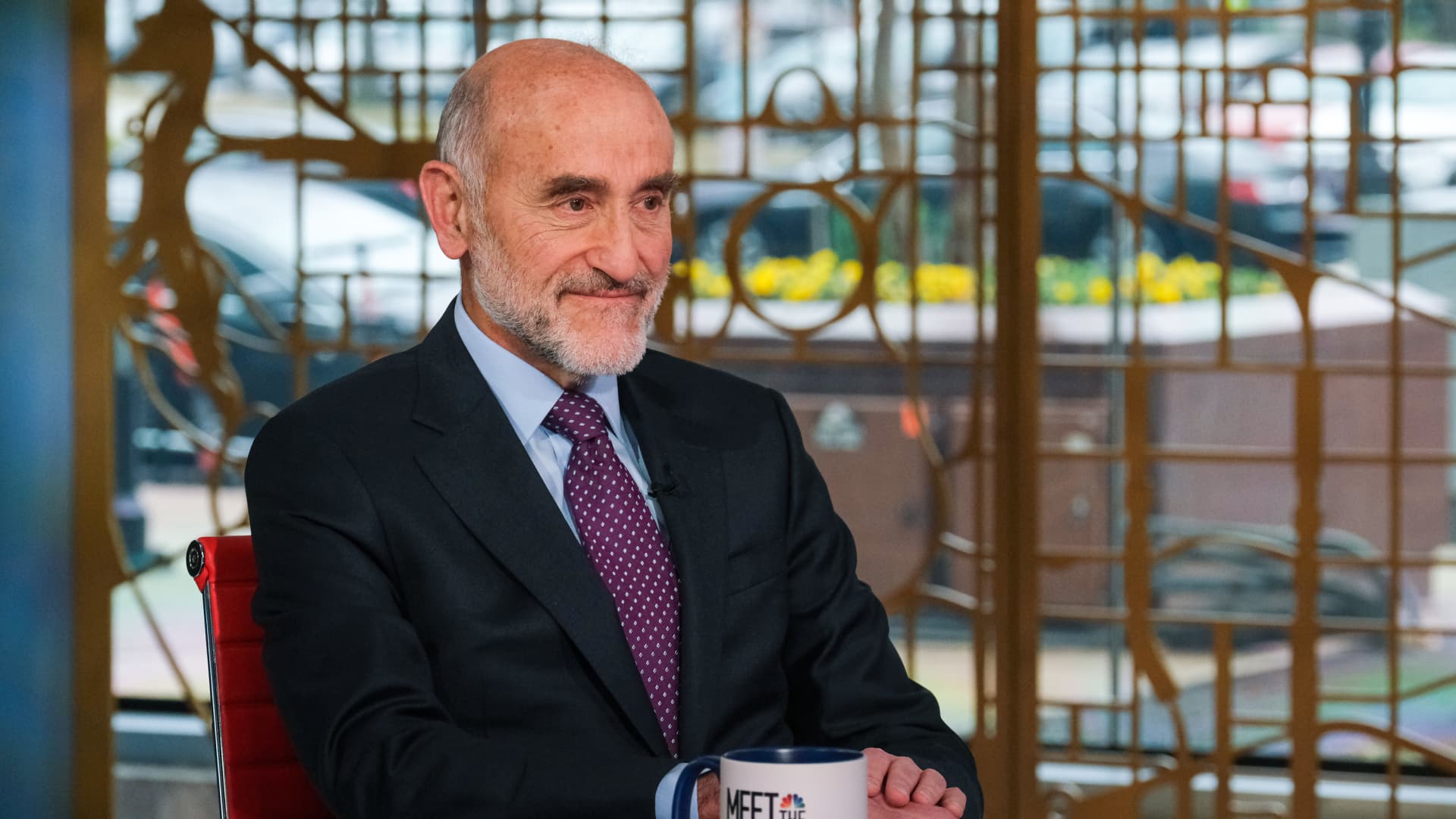
Mark Pomerantz, author, "People vs. Donald Trump: An Inside Account," appears on "Meet the Press" in Washington, Feb. 12, 2023.
William B. Plowman | NBCUniversal | Getty Images
A former prosecutor refused Friday to answer questions at a deposition by the House Judiciary Committee about a criminal investigation of Donald Trump in which he once played a leading role.
The Judiciary Committee, whose chairman Rep. Jim Jordan of Ohio is a close Republican ally of Trump, has been investigating whether the Manhattan District Attorney's Office probe and charging of Trump was politically motivated.
The former prosecutor Mark Pomerantz, in an opening statement prepared for his deposition and obtained by NBC News, called the Judiciary Committee's demand for his testimony "an act of political theater."
"Fortunately, I do not have to cooperate with the cynical histrionics that this deposition represents," said Pomerantz.
He argued he had the right to not answer questions if they were not pertinent "to a legitimate legislative function."
"We are gathered here because Donald Trump's supporters would like to use these proceedings to attempt to obstruct and undermine the criminal case pending against him, and to harass, intimidate and discredit anyone who investigates or charges him," Pomerantz said.
He also cited Trump's recent criminal indictment in New York for allegedly falsifying business records related to a hush money payment as another reason he would not answer questions about the probe.
"The charges against Mr. Trump should be heard and decided by a judge and a jury before politicians second-guess their merits or the decision to bring them," Pomerantz said.
He added the DA's office had instructed him to maintain the office's claims of privilege and confidentiality to protect the integrity of the criminal case against Trump.
Pomerantz also cited his Fifth Amendment right under the Constitution not to answer questions that could be used against him in a possible criminal case.
He noted the DA's office had warned him he could face criminal charges if he disclosed grand jury material, and that a lawyer for the DA had said a book he wrote about the Trump case "exposed [him] to criminal liability." Pomerantz added he did not believe he committed any crime.
Rep. Darrell Issa, R-Calif., a committee member, told reporters later Pomerantz refused to answer any questions at the deposition.
"I've never had a more obstructive and less cooperative witness in my over 20 years in Congress," Issa said, according to NBC News.
"I can tell you, with high confidence after doing this for over 20 years, this witness and the district attorney's office ... of Manhattan has absolutely no intention of allowing any cooperation with this committee," he added.
Jordan later told a pool reporter that "I can't talk about what Mr. Pomerantz may or may not have said — just committee rules."
"But I guess in some ways, I was surprised at some of the positions he took," Jordan said.
Asked if it was possible the committee would seek to hold Pomerantz in contempt of the subpoena, Jordan said, "We'll talk with the team."
Pomerantz, when he left the committee room, said, "I have nothing, nothing whatsoever to say."
His lawyer Ted Wells said that Pomerantz's opening statement "is very clear as to what happened."
The Judiciary Committee earlier this year subpoenaed Pomerantz, who at one point was a top prosecutor in the DA's investigation into Trump.
Pomerantz dramatically quit the DA's office in early 2022, after the new district attorney, Alvin Bragg, decided to pause the probe.
At the time he resigned, Pomerantz said in a letter to Bragg there was "no doubt" Trump had committed crimes related to the valuation of real estate assets used to obtain loans, tax breaks and insurance coverage. Pomerantz went on to write a book that contained details about his work in the investigation.
Bragg in late 2022 resurrected an inquiry into whether Trump had committed a crime by misstating in business records the nature of reimbursements and other money paid to his former lawyer and fixer Michael Cohen, after Cohen paid porn star Stormy Daniels $130,000 right before the 2016 presidential election.
Cohen paid Daniels to keep her quiet about her claim of having had sex with Trump one time years earlier. Trump denies having sex with Daniels.
Trump was indicted on the business records charges in late March. He has pleaded not guilty in the case, the first criminal charges ever filed against a sitting or former U.S. president. The case is not expected to go to trial until next year at the earliest, when Trump will be contesting for the 2024 GOP presidential nomination.
Bragg in April sued the Judiciary Committee in federal court in Manhattan to block the subpoena to Pomerantz, calling it an "unprecedently brazen and unconstitutional attack" on the Trump investigation.
But on April 21, the DA and the panel reached an agreement that allowed Pomerantz to appear for his deposition Friday.
In his opening statement at that deposition, Pomerantz said he had "respect for the rule of law," and "the rule of law requires a witness to appear for testimony in response to a subpoena."
"What I do not respect is the use of the Committee's subpoena power to compel me to participate in an act of political theater," he said.

 Konoly
Konoly 







